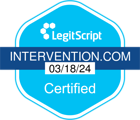Navigating a loved one’s crisis—whether it involves mental health challenges, addiction, or both—can be emotionally taxing and deeply complex. It’s often difficult to know how to help, and even harder to determine which kind of professional can offer the right support. Two experts frequently called upon in such situations are mental health interventionists and addiction interventionists. While their work intersects in many ways, their approaches, areas of expertise, and goals differ.
Understanding these distinctions is key to ensuring that your loved one receives the care they need. In this comprehensive guide, we’ll explore the roles, responsibilities, and best-use cases for both mental health and addiction interventionists. By the end, you’ll be better equipped to make informed decisions that can lead your loved one on the path to recovery.
What Is a Mental Health Interventionist?
A mental wellness interventionist focuses on addressing psychological disorders and emotional crises. These professionals are trained to manage complex behavioral wellness challenges, including conditions such as depression, anxiety, bipolar disorder, PTSD, schizophrenia, and more. Their primary mission is to stabilize immediate mental wellness concerns while guiding the client toward long-term, sustainable treatment.
Mental health interventionists often step in during critical situations when someone is at risk of self-harm, dealing with severe emotional instability, or experiencing an acute psychiatric episode. They act as a bridge between crisis and care, ensuring the individual receives the appropriate medical or therapeutic support.
Key Responsibilities of a Mental Health Interventionist:
- Crisis Stabilization: A mental health interventionist is skilled in de-escalating volatile situations, ensuring the safety of the client and those around them.
- Comprehensive Assessments: They conduct thorough evaluations to identify mental health disorders, potential co-occurring conditions, and underlying emotional struggles.
- Family Guidance and Education: Families often struggle to understand mental health crises. Interventionists provide education, helping families navigate their loved one’s condition with empathy and informed insight.
- Facilitating Treatment Access: Whether it’s inpatient psychiatric care, outpatient therapy, or medication management, mental health interventionists coordinate the next steps toward recovery.
When Should You Call a Mental Health Interventionist?
- When a loved one exhibits suicidal ideation or self-harming behaviors
- If someone is experiencing extreme mood swings or emotional instability
- In cases of psychosis or hallucinations (e.g., schizophrenia or severe bipolar disorder)
- If there’s a history of trauma and PTSD symptoms are worsening
- When anxiety, depression, or other mood disorders are severely impairing daily functioning
If traditional therapy isn’t working or if the situation feels dangerous or urgent, a mental wellness interventionist can provide the specialized support necessary to move toward healing.
What Is an Addiction Interventionist?
An addiction interventionist focuses on guiding those struggling with substance use disorders—such as alcohol, opioids, stimulants, or prescription drugs—toward treatment and recovery. Addiction is often fraught with denial, defensiveness, and complex family dynamics. Interventionists are trained to navigate these emotional landscapes while maintaining the focus on motivating the client to seek help.
These specialists organize structured interventions, allowing family and friends to express their concerns in a safe and controlled setting. The ultimate goal is to encourage the person struggling with addiction to commit to professional treatment.
Key Responsibilities of an Addiction Interventionist:
- Planning Structured Interventions: They carefully design the process, ensuring that loved ones can express their concerns in a compassionate but firm manner.
- Breaking Through Denial: Addiction often comes with a strong sense of denial. Interventionists are skilled in therapeutic dialogue, helping clients recognize the gravity of their situation.
- Coordinating Detox and Rehab Services: Addiction interventionists have strong connections with detox centers, inpatient rehabs, and outpatient programs, facilitating a seamless transition into treatment.
- Post-Intervention Support: Recovery doesn’t end when treatment begins. Addiction interventionists provide families with ongoing guidance, helping them navigate the recovery journey.
When Is an Addiction Interventionist Needed?
- When substance use continues despite severe consequences (job loss, legal issues, health risks)
- If the person is engaging in risky behaviors such as drunk driving or unsafe substance use
- When there have been failed attempts at quitting substances without professional help
- In cases of co-occurring trauma or psychological disorders complicating addiction.
- When the addiction is affecting relationships, finances, or overall well-being
Addiction interventionists excel at creating pathways to recovery, especially when denial and resistance stand in the way of seeking help.
The Core Differences Between Mental Health and Addiction Interventionists
While both roles focus on crisis resolution and connecting clients with appropriate treatment, they approach these goals differently based on the nature of the crisis.
| Aspect | Mental Health Interventionist | Addiction Interventionist |
| Primary Focus | Emotional, psychological, and behavioral health disorders | Substance use disorders and behavioral addictions |
| Typical Client Scenarios | Mood disorders, PTSD, schizophrenia, anxiety, suicidal thoughts | Drug or alcohol addiction, gambling, food addiction |
| Intervention Approach | Crisis stabilization, emotional support, psychiatric referrals | Structured conversation leading to rehab enrollment |
| Post-Intervention Path | Therapy, medication management, inpatient psychiatric care | Detox programs, inpatient/outpatient rehab, sober living |
| Co-Occurring Challenges | Trauma, personality disorders, suicidal ideation | Trauma, dual diagnosis, family strain, legal issues |
When Both Experts Are Needed: Navigating Dual Diagnosis
In many cases, mental challenges and addiction coexist—a situation known as dual diagnosis. For example, someone battling severe anxiety may self-medicate with alcohol, or a person with untreated PTSD might turn to opioids to cope. In these instances, both a mental wellness specialist and an addiction interventionist may collaborate to create a unified, comprehensive treatment plan.
Examples of Co-Occurring Disorders:
- Depression and Alcoholism: Alcohol is often used to numb emotional pain, leading to dependency.
- Anxiety and Prescription Drug Misuse: Anxiety disorders can increase the risk of misusing anti-anxiety medications.
- Bipolar Disorder and Substance Abuse: Mood swings may lead to impulsive behaviors, including drug or alcohol use.
- PTSD and Opioid Addiction: Trauma survivors may use opioids to manage physical or emotional pain, increasing addiction risks.
Treating only one issue often results in relapse or incomplete recovery. Dual diagnosis treatment focuses on addressing both the mental health disorder and the addiction simultaneously for long-term success.
The Crucial Role of Family in the Intervention Process
Whether dealing with a mental health crisis or substance use disorder, the involvement of family is often a game-changer. Interventions thrive when loved ones play a central, supportive role, offering encouragement and stability during the most challenging moments.
Family Contributions to Successful Interventions:
- Contextual Insight: Family members can share behavioral patterns, triggers, and past struggles, helping interventionists create more effective strategies.
- Emotional Support: The reassurance of loved ones during an intervention can help ease defensiveness and encourage openness to treatment.
- Ongoing Involvement: Post-intervention, family members often participate in therapy sessions, support groups, and aftercare planning, helping to create a strong recovery network.
At Intervention.com, we emphasize family-centered approaches, ensuring that loved ones are not just spectators but active participants in the healing journey.
How to Choose the Right Interventionist for Your Loved One
The key to a successful intervention lies in selecting the right expert. Here’s how to decide which professional is best suited for your loved one’s needs:
Identify the Core Issue:
- If the crisis revolves around mental concerns (e.g., depression, anxiety, psychosis), a mental interventionist is appropriate.
- If substance use is the primary issue, an addiction interventionist is the best choice.
Consider Dual Diagnosis
If mental health challenges and substance use are intertwined, look for interventionists experienced in handling co-occurring disorders or opt for a collaborative approach involving both specialists.
Verify Credentials
Look for certifications like Certified Intervention Professional (CIP) or Licensed Clinical Social Worker (LCSW). Ask about experience with specific conditions and co-occurring disorders.
Assess Communication Style
The right interventionist will build trust, communicate openly, and prioritize empathy throughout the process.
Explore Post-Intervention Services
Recovery is a long-term process. Ensure that the interventionist offers aftercare planning and maintains a network of reputable treatment centers and therapists.
Why Choose Intervention.com?
At Intervention.com, we offer a full range of mental health and addiction intervention services, led by our experienced team of specialists. Under the leadership of Brad Lamm, CIP, we approach each case with compassion, integrity, and an unwavering commitment to long-term recovery.
- Mental Health Interventions: Immediate support for psychiatric crises and emotional breakdowns.
- Addiction Interventions: Structured programs guiding clients into detox, rehab, and ongoing recovery.
- Dual Diagnosis Expertise: Coordinated treatment plans addressing both mental health and addiction.
- Trauma-Informed Care: Approaches that recognize and treat trauma’s impact on mental health and substance use.
- LGBTQIA+-Affirming Interventions: Inclusive services designed to support LGBTQIA+ clients with cultural competence.
No two recovery journeys are alike. That’s why we tailor every intervention to the unique needs of each client and their family.
Take the First Step Toward Healing
A mental health or addiction crisis doesn’t have to end in tragedy. The right interventionist can open the door to recovery, providing the support and guidance your loved one needs to reclaim their life.
Don’t wait for the crisis to escalate—take action today. Call us now at (888) 342-4430 or contact us online to schedule a free consultation. Together, we can help your loved one find the path to healing and lasting recovery.

